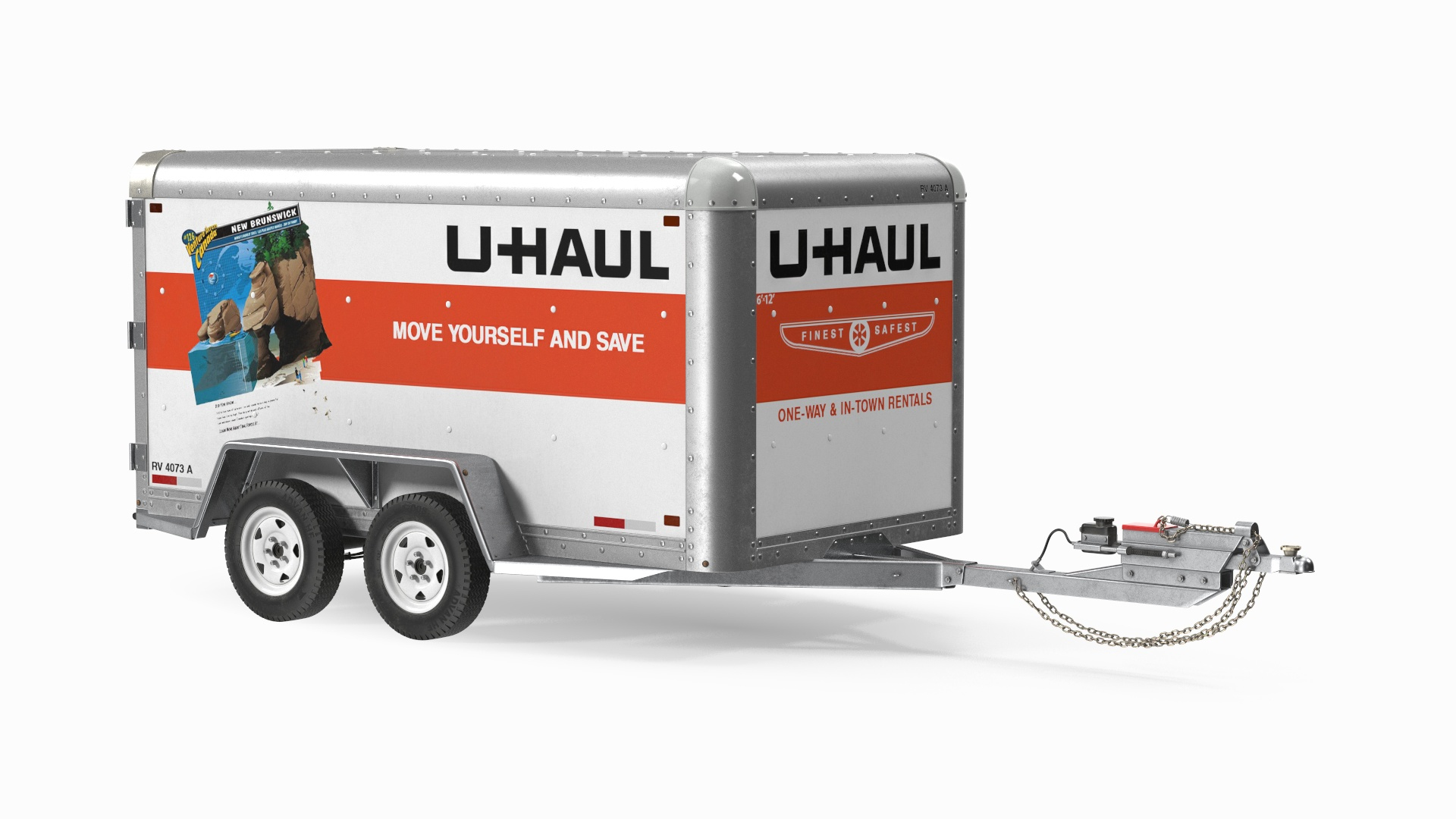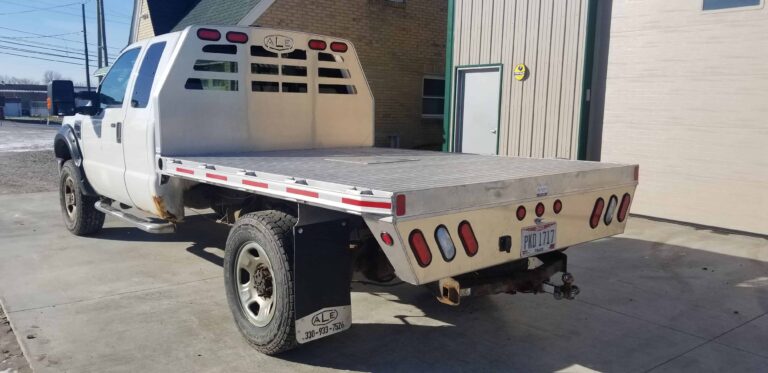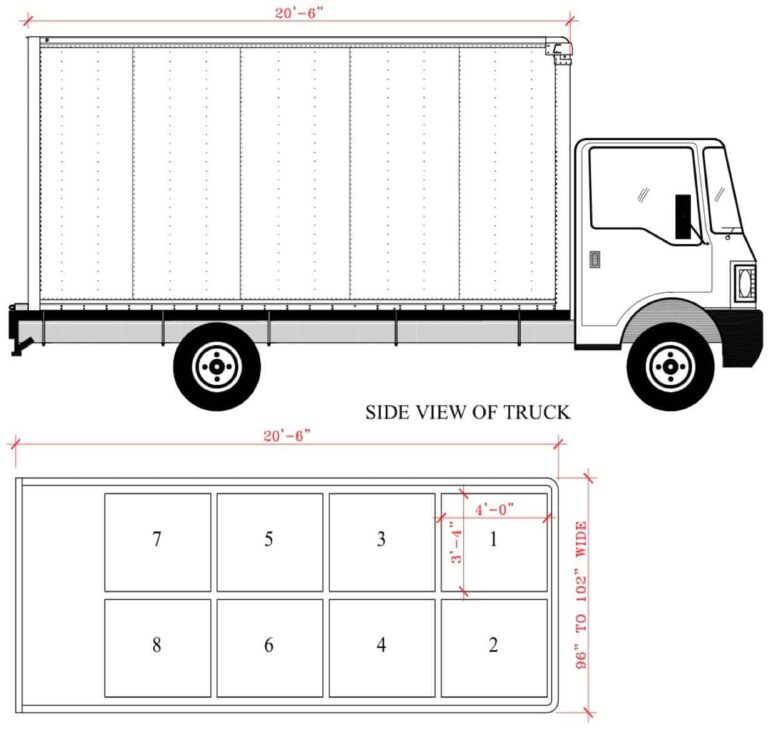U-Haul Trailer Rental: Your Comprehensive Guide to Efficient Hauling
U-Haul Trailer Rental: Your Comprehensive Guide to Efficient Hauling cars.truckstrend.com
Moving, decluttering, undertaking a major DIY project, or transporting a vehicle – these tasks often require more hauling capacity than your everyday car can provide. Enter U-Haul trailer rentals, a ubiquitous and highly practical solution for countless individuals and businesses seeking affordable and flexible transportation options. Far more than just a means to an end, understanding U-Haul trailer rentals can empower you to tackle challenging logistics with confidence, efficiency, and significant cost savings. This comprehensive guide will navigate you through every aspect of U-Haul trailer rental, from selecting the right unit to safely hitting the road, ensuring your next hauling endeavor is a smooth success.
Why Choose U-Haul Trailer Rental? Unpacking the Benefits
U-Haul Trailer Rental: Your Comprehensive Guide to Efficient Hauling
U-Haul has long been synonymous with DIY moving and hauling, and for good reason. Their extensive network and diverse fleet of trailers offer distinct advantages that make them a go-to choice for a variety of needs.
- Cost-Effectiveness: For smaller moves or specific hauling tasks, a trailer rental can be significantly more economical than hiring professional movers or even renting a full-sized moving truck, especially if you already have a capable towing vehicle.
- Flexibility and Convenience: With thousands of locations across North America, picking up and dropping off a U-Haul trailer is remarkably convenient. They offer both in-town (local) and one-way rentals, catering to moves across the street or across the country.
- Variety of Options: From enclosed cargo trailers that protect your belongings from the elements to open utility trailers for bulky items and specialized car haulers, U-Haul provides a trailer for almost every conceivable hauling need.
- DIY Control: Renting a trailer puts you in the driver’s seat, allowing you to pack, load, and transport your items on your own schedule and at your own pace.
- Safety Features: U-Haul trailers are designed with safety in mind, featuring low loading decks, independent suspension for a smoother ride, and robust construction.
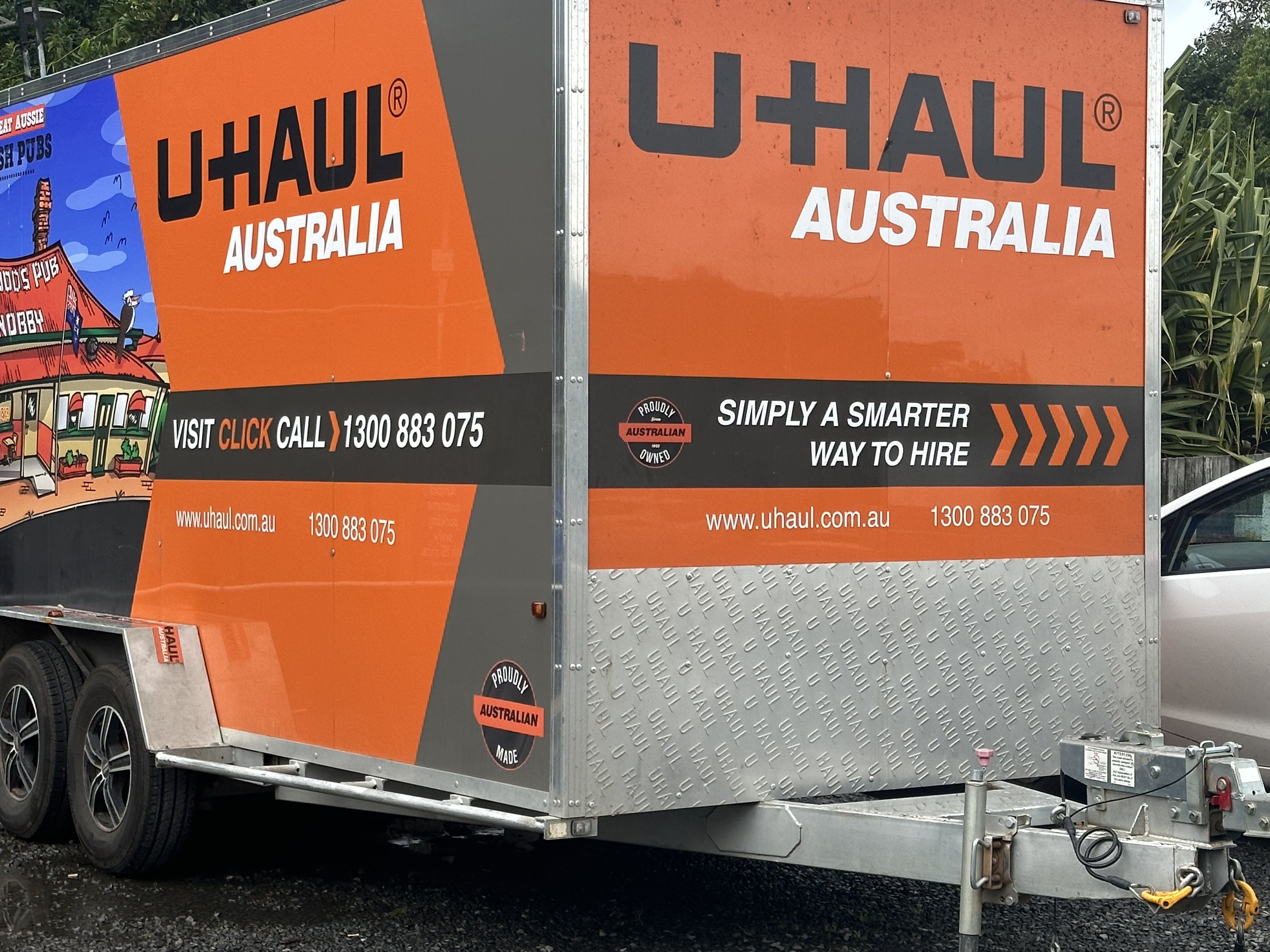
Navigating the Fleet: Types of U-Haul Trailers Available
Understanding the different types of trailers U-Haul offers is crucial for selecting the right one for your specific task. Each type is designed for optimal performance with particular kinds of cargo.
1. Cargo Trailers (Enclosed)
These trailers are fully enclosed, providing protection from weather, road debris, and offering enhanced security for your belongings. They are ideal for moving household goods, furniture, boxes, and items that require safeguarding.
- 4×8 Cargo Trailer: Smallest enclosed option, perfect for studio apartments, dorm rooms, or small loads.
- 5×8 Cargo Trailer: A popular choice for one-bedroom apartments or general hauling.
- 5×10 Cargo Trailer: Offers more space, suitable for larger apartments or small homes.
- 6×12 Cargo Trailer: The largest enclosed option, often used for two-bedroom homes or significant hauling projects.

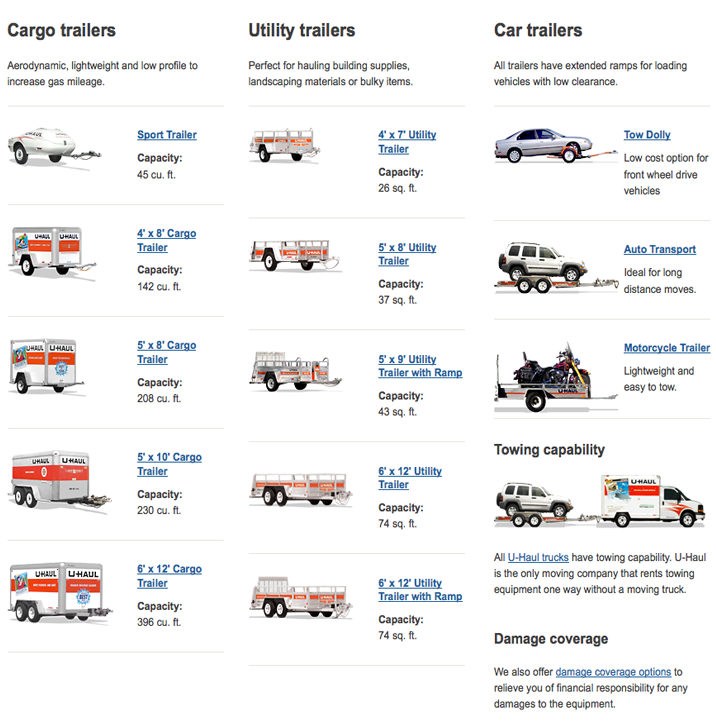
2. Utility Trailers (Open)
Utility trailers are open-top trailers, making them versatile for hauling items that are bulky, oddly shaped, or don’t require protection from the elements. They are excellent for landscaping materials, construction debris, ATVs, motorcycles, and large appliances.
- 4×7 Utility Trailer: Smallest open option, good for light hauling or yard work.
- 5×8 Utility Trailer: A versatile size for general utility, small appliances, or light landscaping.
- 5×9 Utility Trailer with Ramp: Features a ramp for easy loading of lawnmowers, motorcycles, or ATVs.
- 6×12 Utility Trailer (Single & Double Axle): The largest utility options, suitable for heavier loads, large equipment, or multiple ATVs. Double axle provides greater stability and weight capacity.
3. Car Haulers (Vehicle Transport)
Designed specifically for transporting vehicles, U-Haul offers two primary options based on your car’s size and your towing vehicle’s capacity.
- Auto Transport: A full-platform trailer where all four wheels of the towed vehicle rest on the trailer. Ideal for long distances or higher value vehicles, offering maximum protection.
- Tow Dolly: Lifts only the front wheels of the towed vehicle off the ground, with the rear wheels remaining on the road. More compact and lighter, suitable for shorter distances or lighter vehicles.
The U-Haul Trailer Rental Process: A Step-by-Step Guide
Renting a U-Haul trailer is straightforward, but careful planning and execution are key to a successful experience.
Step 1: Assess Your Needs & Towing Capacity
Before anything else, determine what you need to haul and how much it weighs. Crucially, verify your towing vehicle’s capabilities. Check your vehicle’s owner’s manual for its Gross Vehicle Weight Rating (GVWR), Gross Combined Weight Rating (GCWR), and maximum tongue weight. Ensure your vehicle has a properly installed hitch, the correct size hitch ball, and functional wiring for trailer lights.
Step 2: Choose Your Trailer
Based on your cargo and towing vehicle’s capacity, select the appropriate trailer type and size from U-Haul’s offerings. If unsure, U-Haul staff can assist in making the right choice.
Step 3: Make a Reservation
You can reserve a trailer online via the U-Haul website, through their mobile app, over the phone, or in person at a U-Haul center. Provide your pick-up and drop-off locations (for one-way rentals) and desired dates. Booking in advance, especially during peak seasons (summer, end of month), is highly recommended.
Step 4: Pick Up Your Trailer
On your scheduled pick-up day, head to the U-Haul location.
- Documentation: You’ll need a valid driver’s license and a credit card for payment.
- Inspection: A U-Haul representative will help you hook up the trailer to your vehicle, ensuring all connections (hitch, safety chains, lights) are secure and functional. They will also review the trailer’s condition with you.
- Paperwork: Sign the rental agreement, which outlines terms, conditions, and insurance options.
Step 5: Load and Tow Safely
- Loading: Distribute weight properly, placing about 60% of the cargo weight towards the front of the trailer (over the axle) and 40% towards the rear. Secure all items with ropes, straps, or moving blankets to prevent shifting during transit.
- Driving: Drive slower than usual, increase your following distance, and allow more room for turns and braking. Be mindful of the trailer’s length, especially when maneuvering in tight spaces or changing lanes.
Step 6: Return Your Trailer
Return the trailer to the designated U-Haul location by the agreed-upon time. Ensure the trailer is reasonably clean. A U-Haul representative will inspect the trailer and complete the return process. Failure to return on time may result in additional charges.
Important Considerations & Safety Tips
Towing a trailer requires diligence and adherence to safety guidelines. Your safety and the safety of others on the road depend on it.
- Towing Vehicle Requirements: Always match the trailer to your vehicle’s towing capacity. Ensure your hitch is rated for the trailer’s gross weight, and that your vehicle has working brake lights, turn signals, and a 4-pin or 7-pin wiring harness for the trailer lights.
- Weight Distribution is Paramount: Incorrect weight distribution is a leading cause of trailer sway and loss of control. Load heavier items first, over the axle, and balance the load side-to-side.
- Check Tire Pressure: Before departing and periodically during long trips, check the tire pressure on both your towing vehicle and the trailer. Refer to the recommended pressures listed on the trailer or in the owner’s manual.
- Insurance Coverage: Your personal auto insurance may or may not cover damage to a rented trailer or liability while towing. U-Haul offers optional coverage plans like Safemove® (for cargo/utility trailers) and Safetow® (for car haulers) that can provide additional protection against accidental damage and supplemental liability. It’s wise to consider these options.
- One-Way vs. In-Town Rentals: One-way rentals offer the convenience of dropping off at a different location but generally come at a higher cost. In-town rentals are cheaper but require you to return the trailer to the pick-up location.
- Pre-Trip Inspection: Before every trip, double-check that the hitch connection is secure, safety chains are crossed and attached, all lights are working (running, brake, turn signals), and the tires appear properly inflated.
Maximizing Your U-Haul Trailer Rental Experience
- Book Early: Especially during peak moving seasons (late spring to early fall) or end-of-month dates, trailer availability can be limited. Reserve your trailer well in advance.
- Utilize U-Haul Supplies: U-Haul centers offer a wide range of moving supplies, including tie-downs, furniture pads, and boxes, which can be invaluable for safely securing and protecting your cargo.
- Plan Your Route: Consider the dimensions of your loaded trailer, especially height and length, when planning your route. Avoid low clearances, sharp turns, and extremely narrow roads if possible.
- Understand Your Rental Agreement: Read the terms and conditions carefully, paying attention to rental duration, mileage limits (if any for one-way), late return policies, and fuel requirements (though trailers don’t use fuel, ensure your vehicle is ready).
- Roadside Assistance: U-Haul offers 24/7 roadside assistance. In case of a flat tire, breakdown, or other issues with the trailer, contact their support line immediately.
U-Haul Trailer Rental Price Table (Estimated Daily Rates)
Please note: Prices are estimates and can vary significantly based on location, availability, time of year, rental duration (in-town vs. one-way), and specific U-Haul promotions. One-way rentals are typically priced based on a flat rate for a specific route and duration, rather than a daily rate. Always get a direct quote from U-Haul for accurate pricing.
| Trailer Type | Size | Estimated In-Town Daily Rate (USD) | Estimated One-Way Rate (Varies by Distance/Duration) | Max Weight Capacity (Approx.) | Ideal Use Case |
|---|---|---|---|---|---|
| Cargo Trailers | 4×8 Enclosed | $14.95 – $19.95 | $100 – $300+ | 1,600 lbs | Small loads, dorms, studio apartments |
| 5×8 Enclosed | $19.95 – $24.95 | $150 – $400+ | 1,800 lbs | 1-bedroom apartment, general hauling | |
| 5×10 Enclosed | $29.95 – $34.95 | $200 – $500+ | 2,000 lbs | Larger apartments, small homes | |
| 6×12 Enclosed | $34.95 – $39.95 | $250 – $600+ | 2,500 lbs | 2-bedroom homes, larger moves | |
| Utility Trailers | 4×7 Open | $14.95 – $19.95 | Not typically available one-way | 1,700 lbs | Light yard work, small furniture |
| 5×8 Open | $19.95 – $24.95 | Not typically available one-way | 1,800 lbs | General utility, small appliances, landscaping debris | |
| 5×9 w/ Ramp | $24.95 – $29.95 | Not typically available one-way | 1,650 lbs | ATVs, motorcycles, lawnmowers | |
| 6×12 Open | $29.95 – $34.95 | Not typically available one-way | 2,500 – 3,000 lbs | Large debris, equipment, multiple ATVs | |
| Car Haulers | Tow Dolly | $49.95 – $59.95 | $150 – $500+ | 3,450 lbs | Front-wheel drive vehicles, shorter distances |
| Auto Transport | $69.95 – $79.95 | $200 – $700+ | 5,290 lbs | All vehicle types, long distances, maximum protection |
Note: Prices do not include taxes, environmental fees, optional insurance, or other add-ons.
Frequently Asked Questions (FAQ) About U-Haul Trailer Rental
Q1: What do I need to tow a U-Haul trailer?
A1: You need a vehicle with a sufficient towing capacity, a properly installed hitch receiver, a hitch ball of the correct size (usually 1 7/8" or 2" for most U-Haul trailers), and a working wiring harness for the trailer’s lights (typically a 4-flat connector).
Q2: Can I rent a U-Haul trailer one-way?
A2: Yes, most enclosed cargo trailers and car haulers are available for one-way rentals, allowing you to pick up in one location and drop off in another. Utility trailers are generally for in-town use only.
Q3: What kind of driver’s license do I need to rent a U-Haul trailer?
A3: For most U-Haul trailers, a standard valid driver’s license from your state or province is sufficient. Commercial driver’s licenses (CDLs) are not typically required unless the combined weight of your vehicle and loaded trailer exceeds specific state or federal regulations (which is rare for typical U-Haul setups).
Q4: Is insurance included with my U-Haul trailer rental?
A4: No, basic insurance is not automatically included. U-Haul offers optional coverage plans like Safemove® (for cargo/utility trailers) and Safetow® (for car haulers) which provide protection against accidental damage to the trailer and supplemental liability. It’s recommended to check with your personal auto insurance provider first to understand your existing coverage.
Q5: What if my vehicle isn’t big enough to tow the trailer I need?
A5: If your vehicle cannot safely tow the desired trailer, U-Haul will not allow the rental for safety reasons. You would then need to consider renting a U-Haul moving truck, which can tow smaller trailers or accommodate your entire load, or choose a smaller trailer suitable for your vehicle.
Q6: Do I need to clean the trailer before returning it?
A6: Yes, U-Haul asks that you return the trailer in a reasonably clean condition, free of trash or debris. Excessive dirt or damage may result in additional cleaning or repair fees.
Q7: What happens if I return the trailer late?
A7: Returning a trailer late can result in additional charges, typically based on an hourly or daily late fee. It’s always best to communicate with the U-Haul location if you anticipate being late to avoid unexpected costs.
Conclusion: Empowering Your Hauling Endeavors
U-Haul trailer rentals offer an incredibly versatile and accessible solution for a wide array of hauling and moving needs. From the compact 4×8 cargo trailer perfect for a dorm room move to the robust auto transport capable of relocating a vehicle across states, U-Haul empowers individuals to take control of their logistics. By understanding the types of trailers available, meticulously planning your rental process, and prioritizing safety at every step, you can transform daunting hauling tasks into manageable, cost-effective, and successful projects. So, the next time you face a challenge that requires extra space on the road, remember the power and convenience of a U-Haul trailer, your reliable partner in efficient hauling.
